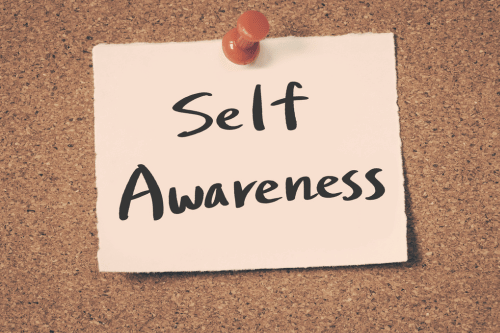DBT Anger Management: A Comprehensive Guide
What is Dialectical Behavior Therapy (DBT)?
Dialectical Behavior Therapy (DBT) is a type of cognitive-behavioral therapy. It focuses on managing intense emotions and building emotional regulation skills. DBT helps people deal with real-life situations that trigger difficult emotions and destructive behaviors.
Understanding Anger and Emotional Dysregulation
Anger is a natural emotion, but unmanaged anger can damage relationships and quality of life. Emotional dysregulation often leads to impulsive reactions, angry outbursts, and aggressive behavior. DBT provides structured tools to identify and respond to emotional triggers more effectively.
The Fundamentals of DBT
DBT was developed by Dr. Marsha Linehan to help individuals with borderline personality disorder and emotional dysregulation. Its core component is balancing acceptance and change. This therapeutic approach has proven effective for a wide range of mental health issues, including chronic anger.
Components of DBT Therapy
DBT therapy includes individual therapy, group skills training, phone coaching, and team consultation. These components create a supportive environment to learn and apply DBT techniques. Sessions often last 40–60 minutes and focus on specific emotional health goals.
Historical Context and Development
Marsha Linehan introduced DBT in the late 1980s to address self-harming behaviors and suicidal ideation in people with borderline personality disorder. Since then, DBT has been adapted to address anger management issues, depressive disorders, and post-traumatic stress disorder. DBT’s structured format allows for real-world application.
DBT’s Approach to Anger Management
DBT treats anger as a secondary emotion triggered by vulnerability to anger or unresolved anger. It teaches awareness of anger and healthy coping mechanisms to break the cycle of anger. DBT also helps individuals recognize signs of anger before reactions escalate.
The Four Modules of DBT
Mindfulness
Mindfulness techniques help individuals focus on the present. They reduce impulsive behaviors by calming the emotional mind. Practices like body scans, deep breathing, and wise mind exercises improve emotional stability.
Distress Tolerance
Distress tolerance skills are crucial for handling anger-provoking situations. They teach people how to cope with distressing situations without acting on negative emotions. DBT uses strategies like radical acceptance and breathing exercises to manage intense anger.
Emotion Regulation
The emotion regulation module helps people label emotions and understand emotional responses. It builds skills for anger management and emotional regulation strategies. This module is key to reducing vulnerability to anger and managing uncomfortable emotions.
Interpersonal Effectiveness
Strong interpersonal skills lead to healthier relationships and fewer conflicts. DBT teaches conflict-resolution skills, assertive anger communication, and active listening. These tools help in managing strained relationships and angry families.
Integration with Cognitive Behavioral Therapy (CBT)
CBT techniques such as cognitive restructuring enhance DBT’s effectiveness. Together, they help people process emotions and challenge destructive thoughts. This combination improves emotional regulation and reduces poor decision-making.
Benefits of Combining DBT and CBT
Combining DBT and CBT supports a more comprehensive approach to anger issues. It addresses both the behavioral and emotional aspects of human emotion. This integration is useful for mental health conditions like bipolar disorder and Attention-deficit/hyperactivity disorder.
A Holistic Approach to Anger Management
DBT offers a wide range of skills for anger management. It transforms uncontrollable anger into adaptive responses. This holistic method promotes emotional well-being and supports long-term behavior change.
Enhancing Emotional Regulation and Self-Awareness
Awareness of anger helps individuals pause and choose healthier coping mechanisms. DBT helps them build emotional regulation skills to respond to emotional swings. Over time, this reduces angry reaction patterns and emotional instability.
Techniques to Improve Communication Skills
Good communication lowers the risk of angry outbursts. DBT teaches assertive communication and active listening. These skills support romantic partners, personal relationships, and relationships with family.
Strategies for Building Self-Awareness
Self-awareness begins with recognizing warning signs and emotional triggers. DBT includes tools like the anger scale and anger worksheet to increase awareness. Understanding the link between anger and depression also helps uncover underlying issues.
The Role of DBT in Recovery and Relationship Improvement
DBT therapy supports both recovery and relationship repair. It helps clients rebuild trust and stop the havoc on relationships caused by expulsive anger. These changes improve emotional health and daily lives.
Impact on Personal and Professional Relationships
Unmanaged anger can hurt academic performance and workplace dynamics. DBT helps individuals maintain emotional control in challenging situations. With better emotion regulation, they can form and keep healthy relationships.
Overcoming Anger-Related Challenges
DBT targets unresolved anger, impulsive behaviors, and destructive behaviors. It offers structured skills training sessions to replace angry reactions with adaptive responses. These interventions for anger promote emotional well-being and better choices.
Choosing the Right Mental Health Treatment
Finding the right mental health treatment centers is key to success. Programs should offer a central component like DBT to address emotional dysregulation. Treat MH Tennessee offers Mental Health Treatment Programs for individuals facing anger issues and co-occurring mental health challenges.
Evaluating Different DBT Programs
When evaluating an anger management program, look for individual therapy sessions, group DBT-based anger management groups, and skills training for borderline personality disorder. A good program provides tools to handle real-life situations with emotional balance.
Importance of Group Therapy Settings
Group therapy allows people to share experiences and learn from others. This classroom-type environment builds coping skills and confidence. It also gives clients exposure to a wide range of emotional responses and healthy coping strategies.
Special Focus: Greater Boston Behavioral Health
Programs Offered
Greater Boston Behavioral Health offers DBT-based anger management programs. Their services include therapy for anger, adolescent anger management, and behavioral therapy for families. Programs also address anger among adolescents and anger in children.
Success Stories and Testimonials
Clients report improvements in emotional regulation and reduced angry outbursts. Many have seen better relationships and academic outcomes. These stories show the success of DBT therapy and supportive environments.
The Link Between Anger and Depression
Understanding the Connection
Anger and depression often occur together. Suppressed anger can become chronic depression. DBT addresses both emotions through acceptance strategies and emotion regulation.
Managing Both Emotions with DBT
DBT helps individuals process complex emotions and break the cycle of anger and sadness. It strengthens emotional regulation strategies to manage depressive disorders. With support, clients learn to move from anger into understanding.
Conclusion and Next Steps in DBT Anger Management
Anger management skills are essential for emotional health and quality of life. DBT provides a structured, effective approach for people with anger problems and emotional dysregulation. At Treat MH Tennessee, our Mental Health Therapy Programs offer personalized strategies to help you manage intense emotions and create a brighter future.
FAQ's
Yes, DBT teaches mindfulness and distress tolerance to stay calm in frustrating driving situations and avoid impulsive outbursts.
DBT is highly effective for teens, offering skills to manage emotional swings, impulsive behavior, and peer conflict.
Many people begin to see results within 6–12 weeks of consistent practice in therapy and skills training sessions.
Most insurance plans cover DBT-based programs, especially when prescribed for emotional dysregulation or related diagnoses.










